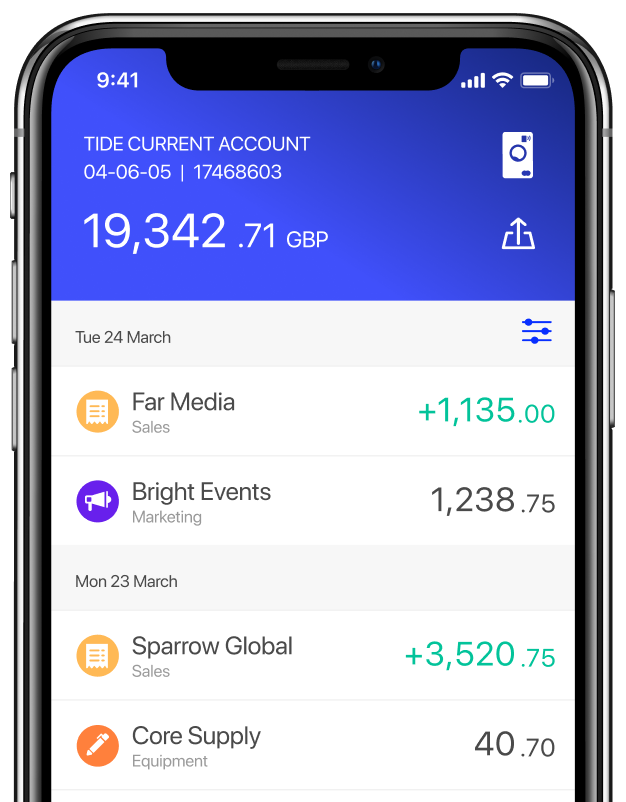
Personal savings allowance: how much savings interest is tax free?

Most of us are allowed to earn a certain amount of income each year before we have to pay tax. But did you know there’s a similar rule for interest on savings?
It’s called the personal savings allowance, and it could entitle you to earn as much as £1,000 in tax free savings interest each year.
In this article, we’ll explain what the personal savings allowance is and how it works, so you know exactly how much you can earn before paying tax.
What is the personal savings allowance?
The personal savings allowance is the amount of interest you can earn on your savings each year without having to pay tax on it.
Any savings interest you earn above your personal savings allowance is taxed at your usual rate of income tax.
How does the personal savings allowance work?
The amount of personal savings allowance you’re entitled to depends on which income tax band you fall into.
You can work this out by adding together your total taxable income from all sources – including interest on your savings.
| Income tax band | Personal savings allowance |
|---|---|
| Basic rate (income from £12,571 to £50,270) | £1,000 |
| Higher rate (£50,271 to £125,140) | £500 |
| Additional rate (£125,141 and above) | £0 |
Example
You earn £40,000 in salary and £3,000 in savings interest in a single tax year. These are your only sources of income, so you pay basic rate income tax.
So, your personal savings allowance is £1,000 – which means you will only pay income tax on £2,000 of the savings interest you earned.
How does the personal savings allowance work for joint accounts?
Any interest you earn on savings in a joint account is split equally between you and the other account holders.
Each account holder’s share gets added to their other taxable income to calculate their own personal savings allowance.
Example
You and your three housemates hold a joint savings account, which earns £3,000 in interest. You each get a 25% share, or £750.
Your £25,000 salary puts you in the basic rate income tax band, which means all of your £750 savings interest is tax free thanks to your £1,000 personal savings allowance.
But your housemate earns a £70,000 salary, and is only allowed to earn £500 in tax free savings interest. They will pay tax on the remaining £250.
Can savings interest impact my income tax band?
Yes. Your income tax band is calculated by adding together all of your taxable income – including any interest you earn from savings.
So, if your salary puts you close to the top of an income tax band, earning savings interest could push you into a higher tax band – and affect your personal savings allowance.
Example
Your £50,000 annual salary is your only non-savings income, which makes you a basic rate income tax payer (20%).
You then decide to open a savings account and your deposits earn you an extra £5,000 in interest within the tax year.
This takes your total taxable income to £55,000, which pushes you into the higher rate income tax band. Your personal savings allowance to £500, and all income above £50,270 is subject to tax at 40%.
Does the personal savings allowance apply to sole trader business savings?
Yes. If you operate as a sole trader and hold deposits in a business savings account, that money belongs to you personally.
Any interest earned on those savings counts towards your total taxable income for income tax purposes.
What types of interest does the personal savings allowance cover?
Despite its name, the personal savings allowance doesn’t apply only to interest earned on deposits in bank, building society or savings accounts.
In fact, your personal savings allowance applies to interest earned from a range of financial products you may not think of as ‘savings’ at all, including:
- credit union accounts
- unit trusts, investment trusts and open-ended investment companies
- peer-to-peer lending
- trust funds
- payment protection insurance, or PPI
- government or company bonds
- life annuity payments, and
- some life insurance contracts.
However, there are savings accounts that allow you to earn interest without paying any tax at all – eg ISAs and certain NS&I products. Find out more in our guide to tax on savings interest.
What happens if you exceed your personal savings allowance?
Any savings interest you earn over your personal savings allowance is taxed at your usual rate of income tax.
Whether you have to manually report and pay this tax to HMRC or have it automatically deducted depends on whether you pay income tax via PAYE (in which case HMRC will change your tax code) or via a self-assessment tax return.
Wrapping up
If you’ve been meaning to find out what your personal savings allowance is for a while, we hope you can now cross this item off your to-do list.
And if ‘Find a business savings account’ is also on your list, we might be able to help with that too. Our Tide Instant Saver savings account lets you:
- Earn a competitive rate of interest on your savings
- Access your savings instantly without paying a fee
- Start saving from just £1 and deposit as much as you like
- Open your account and start saving within minutes.
Interested? Take a look at Tide Instant Saver and start saving today.



